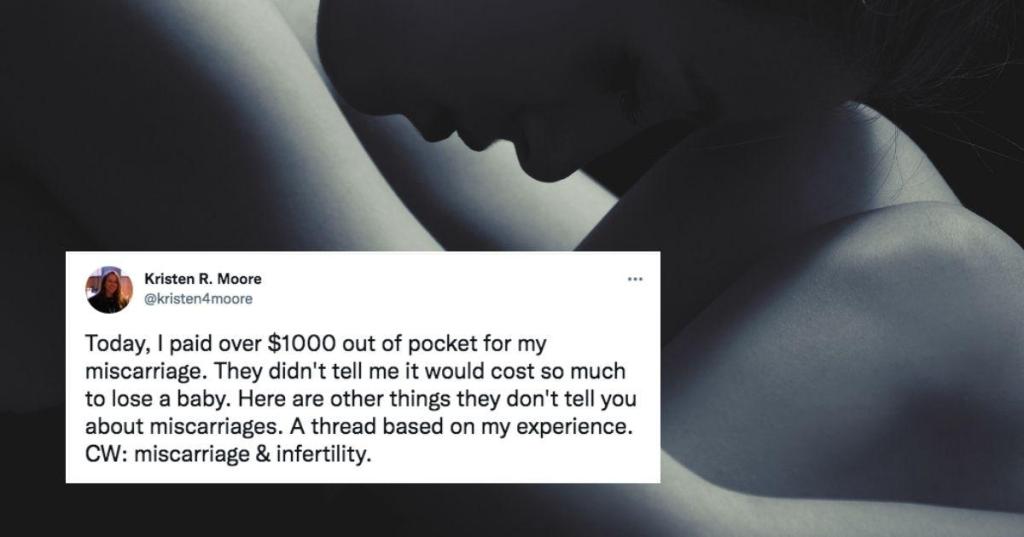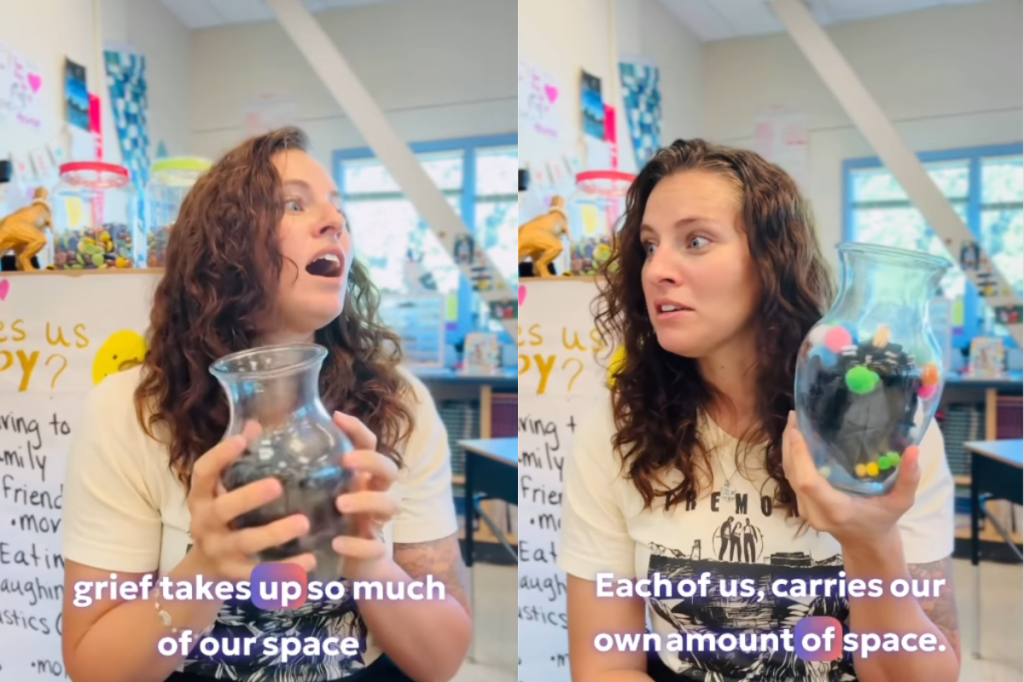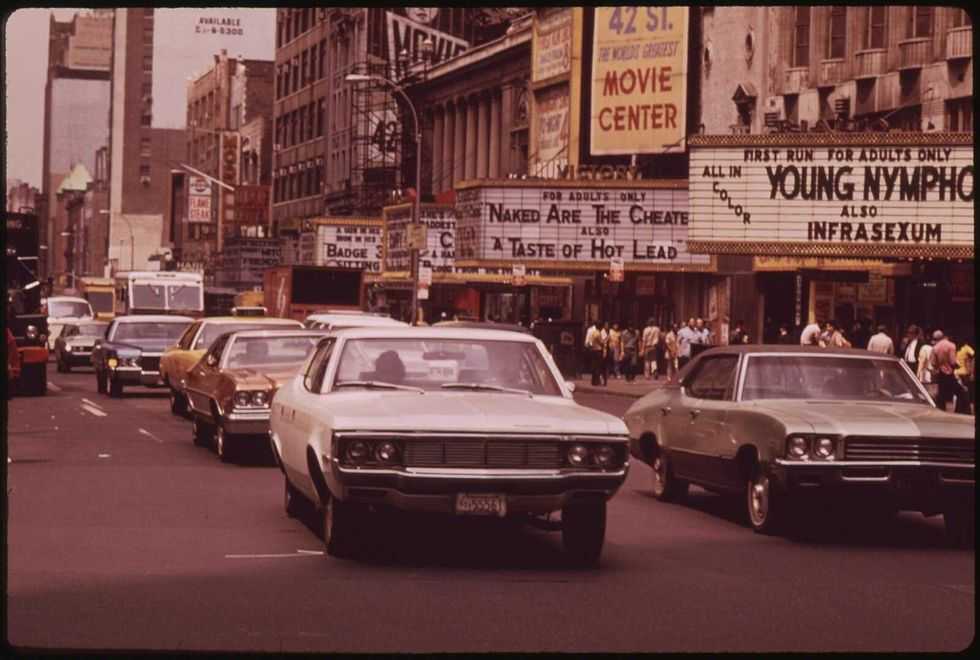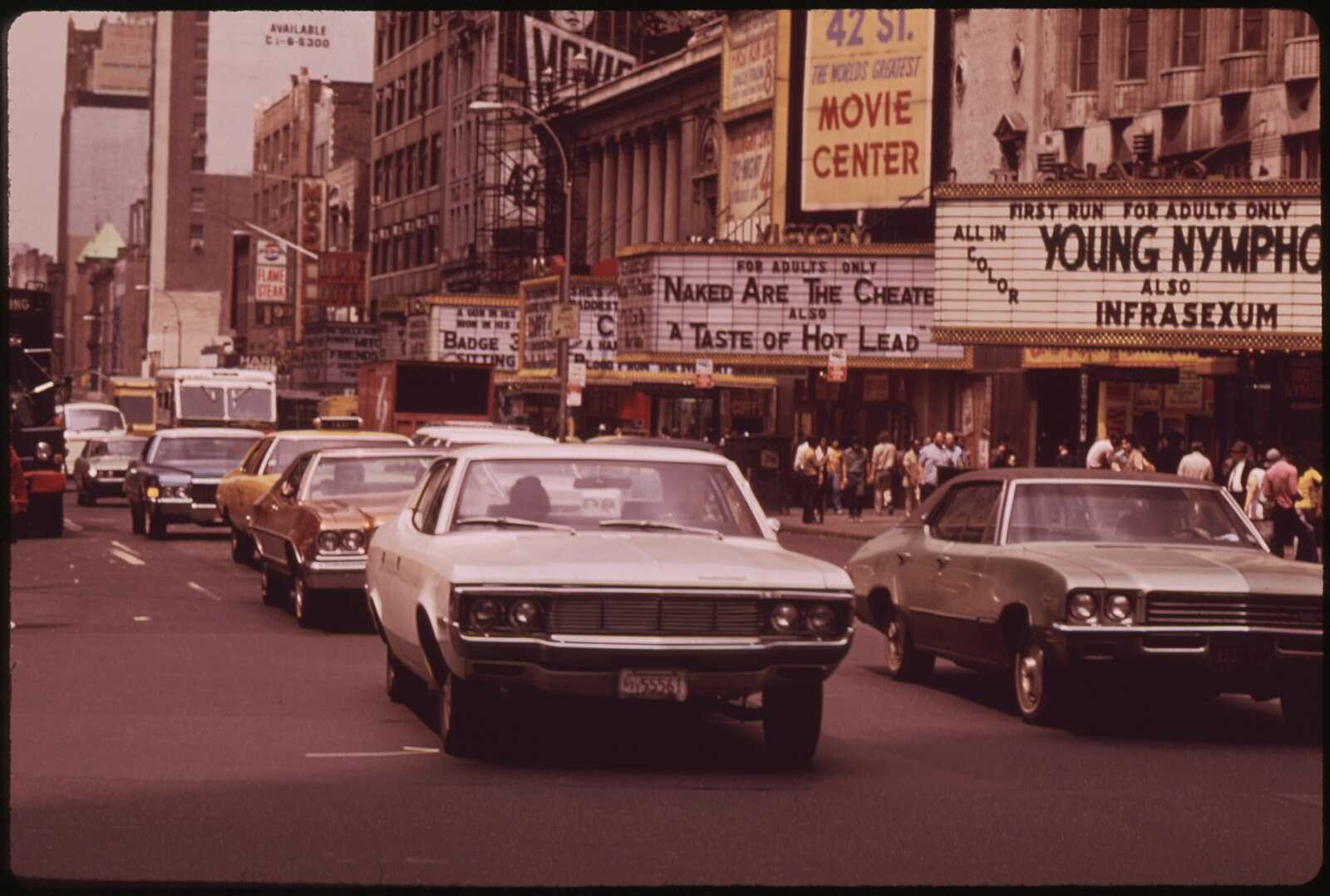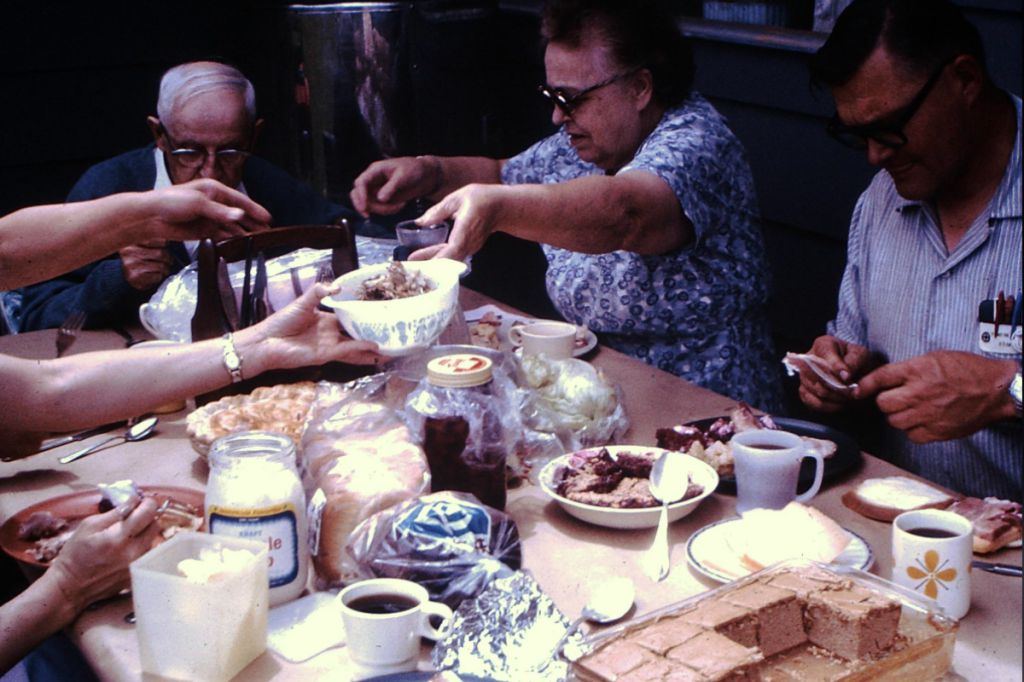Miscarriage is a tough topic that many are hesitant to talk about. The private nature of losing a pregnancy and the complex feelings that come along with it creates a silence that leaves those experiencing it feeling alone and those not experiencing it ignorant of the reality.
According to the Mayo Clinic, about 10-20% of known pregnancies end in miscarriage, which means we all know someone who has or will experience it at least once, even if we don’t experience it ourselves. To best support those who do, it’s important that we all have a better understanding of what a miscarriage can entail, logistically, emotionally and even financially.
Twitter user Kristen R. Moore shared 15 things she learned about miscarriage that she didn’t know before going through one herself, and her thread has prompted others to share their experiences as well.
“Today, I paid over $1000 out of pocket for my miscarriage,” she wrote. “They didn’t tell me it would cost so much to lose a baby. Here are other things they don’t tell you about miscarriages.”
Then she shared a thread describing 14 other eye-opening realities she went through during and after her miscarriage.
“1. It takes a long time. It’s not an event that’s suddenly over. It’s like a fucking marathon. A sad, dehydrated marathon with nothing on the end but empty.
2. Practitioners who support birth don’t necessarily know how to support miscarriage—the joy of birth is so stark when compared to the grief and loss of miscarriage. Some of y’all need training.
3. There is medication to help the miscarriage along. It is used for abortion, too, and your pharmacist may treat you like you’re entering an abortion clinic when you want more information about how it works.
4. The most commonly used medication is officially prescribed for ulcers; all use for miscarriage management is “off books.” This gives your pharmacist permission (tacit or explicit) to deny you information about vaginal (rather than oral) use.
5. The informational inserts for the medication—Misoprostol—warn you about how it can trigger miscarriage. If you have a decent pharmacist, they’ll give you supplemental information that they print off from the internet.
6. When you’ve been through infertility treatments, a natural pregnancy doesn’t always feel like a miracle. Sometimes it feels like a tightrope walk, a risk, a pain waiting to happen.
7. Miscarriage is so, so lonely. Y’all. The emptying of your body like that…bless it. You really DON’T want to talk about it, but you sometimes want to scream about it. Where can we go to scream?
8. You want it to speed up and slow down all at once. Hurry, hurry, hurry up, and then no, don’t go–please don’t go.
9. Non-birthing parents are ignored in the miscarriage experience: their grief and pain and suffering is real, too.
10. When the miscarriage happens at 13 weeks, the weight stays on; you still have to pull out the pregnancy pants, as a reminder of your previous maternity state.
11. No one talks about it, so you don’t know how to talk about. People say the wrong thing, but you’re so sad that you don’t want to say, ‘don’t ever say that to a person miscarrying.’
12. Related, do not recommend: ‘But you can try again soon, right?’ upon hearing the news. Also, do not recommend: ‘Everything happens for a reason.’ Or ‘This is all part of God’s plan.’
13. There are humans who feel like little angels, the tech who asks if you want to hear the lack of heartbeat, the friend you can scream with, the partner who’ll hold you in your grief. Mostly they feel like blips on a terrible painful road.
14. It’s expensive and painful (like birth) and at the end you don’t get anything except a bill and a new playlist called, ‘Shit to help you get through the baby that never was.’”
It’s rare that we get the inside look at miscarriage that Moore’s thread offers, and her courageous sharing will undoubtedly help both those who have experienced it to be seen and those who haven’t to understand.
Others added to the thread with their own details as well.
Some commenters pointed out how their work provided no paid time off so they either had to work right after their miscarriage or take unpaid time off (and still get flack for it). Reason #3,782 why the lack of universal guaranteed paid leave in the U.S. is ridiculous. (In the meantime, New Zealand offers bereavement leave after a pregnancy loss. Why Americans aren’t marching in the streets daily over our healthcare and paid leave situation is a mystery.)
The cruelty of that reality is compounded by the fact that miscarriage is not a one-time event that is then over and done with. For some people, in so many ways, the trauma of it ends up being relived over and over again.
These are things that we all need to understand for ourselves, for our loved ones and for anyone we know who might experience losing a baby through miscarriage.
The full picture is even more complex, of course. Everyone’s emotional experience is unique, and how someone feels about a miscarriage depends on many factors, so broad generalizations aren’t necessarily helpful. For people with an unwanted pregnancy, a miscarriage might even come as somewhat of a relief. However, that doesn’t change the physical or financial realities of going through one.
Whatever the circumstances, having greater knowledge of what a person might be going through when they have a miscarriage can help us offer more compassionate support. Thank you, Kristen Moore, for being open about your experience and getting the ball rolling on this important conversation.

